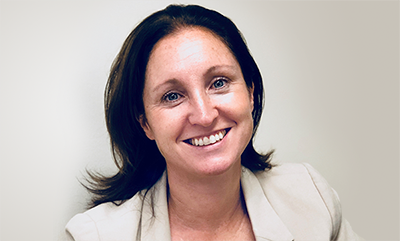‘We’re All Part of One Community’.
Home state: New York. Extracurriculars: Hanging out with my children.
Devin Larkin SPH'09 and Director of the Bureau of Recovery Services at the Boston Public Health Commission
On Tuesday, June 4, the Activist Lab will kick off the 2019 Water Squad program, in which students, staff, and faculty members on the Boston University Medical Campus can volunteer to distribute water each week to community members on Albany Street.
The program, now in its fourth year, serves as an opportunity not only to offer hydration during the hot summer months in Boston, but also for participants to connect and engage with residents in the surrounding community, who are often struggling with homelessness, substance misuse, mental health issues, and the stigma and bias that can accompany those challenges
We spoke with School of Public Health alum Devin Larkin (SPH’09), director of the Bureau of Recovery Services at the Boston Public Health Commission, on the impact of the Water Squad and the need for continued engagement and action to improve the critical public health challenges that exist around the BUMC campus and beyond.
Can you describe your role as director of BPHC’s Recovery Services Bureau?
I oversee all of our direct care programs, which includes our health and harm reduction programs for drug users, access to care programs, street outreach programs, and Engagement Center, which are all programs that work in collaboration to provide services to the population who are on the street in this neighborhood.
Can you speak to the importance and value of programs such as the Water Squad, and how small acts can make a vital impact on people’s wellbeing?
We encourage the community to get involved in ways that can be helpful. The need on the street in the neighborhood where the School of Public Health is located is immense, and we know that the larger community is impacted by that.
One of the things that we focus on at BPHC is how to work with people who are contemplative or pre-contemplative about treatment, or not ready or willing to go to treatment for a range of reasons, which are valid, and how we can provide quality-of-life improvements for those participants. We know that clean water is really important, and we use clean water as an intervention in a lot of different ways: to help people stay hydrated and cool, to be able to wash their hands, and to inject safely.
So I think the Water Squad is a really easy way for students to do outreach that makes a real difference for somebody’s health. The students are part of this community, as are the business owners, the neighborhood associations, the hospital, and the homeless guests who live here. We’re all part of one community, and it helps when people work together to take care of our community.
Another goal of the Water Squad and the Life on Albany initiatives is to decrease the stigma of substance misuse. Do you think that this stigma is beginning to decrease, given the widespread attention that the national opioid crisis has received?
Students come to the School of Public Health from all over the country, and I can see how the stimulation in this neighborhood could be overwhelming for some people. Some have experienced working with people who are on the street, and others have longstanding backgrounds in health services, where they worked with people inside, but not with people outside. Breaking down barriers, going outside on the street, and meeting people in your neighborhood can be a good way to build community and break down stigma.
There’s a lot of misinformation about some of our participants being dangerous or unfriendly, and I think when you volunteer with the Water Squad, you realize that’s not the case – those are myths. These are people who actually care a lot about their health, they’re just sick and struggling, and that’s a lesson we want students to know, because they’re going to take that with them in their public health career.
How has your degree in public health helped inform your work in recovery services?
I’m a public health social worker and completed the dual-degree MSW/MPH program at BU. Both degrees have been integral to the success of working in recovery services. The clinical perspective and the commitment to social justice that I get from social work is front and center every day, but being a public health graduate helps me step back and see the big picture, and build programs that really respond to the needs of the community based on the feedback that we hear.